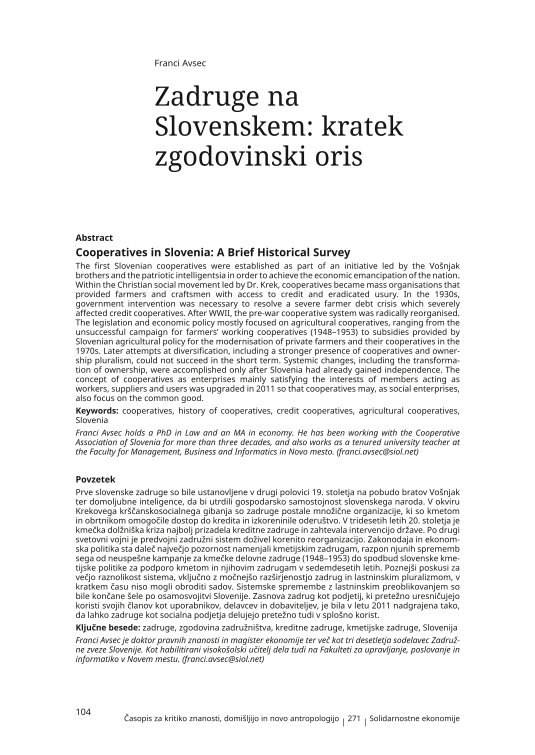The first Slovenian cooperatives were established as part of an initiative led by the Vošnjak brothers and the patriotic intelligentsia in order to achieve the economic emancipation of the nation. Within the Christian social movement led by Dr. Krek, cooperatives became mass organisations that provided farmers and craftsmen with access to credit and eradicated usury. In the 1930s, government intervention was necessary to resolve a severe farmer debt crisis which severely affected credit cooperatives. After WWII, the pre-war cooperative system was radically reorganised. The legislation and economic policy mostly focused on agricultural cooperatives, ranging from the unsuccessful campaign for farmers’ working cooperatives (1948–1953) to subsidies provided by Slovenian agricultural policy for the modernisation of private farmers and their cooperatives in the 1970s. Later attempts at diversification, including a stronger presence of cooperatives and ownership pluralism, could not succeed in the short term. Systemic changes, including the transformation of ownership, were accomplished only after Slovenia had already gained independence. The concept of cooperatives as enterprises mainly satisfying the interests of members acting as workers, suppliers and users was upgraded in 2011 so that cooperatives may, as social enterprises, also focus on the common good.




